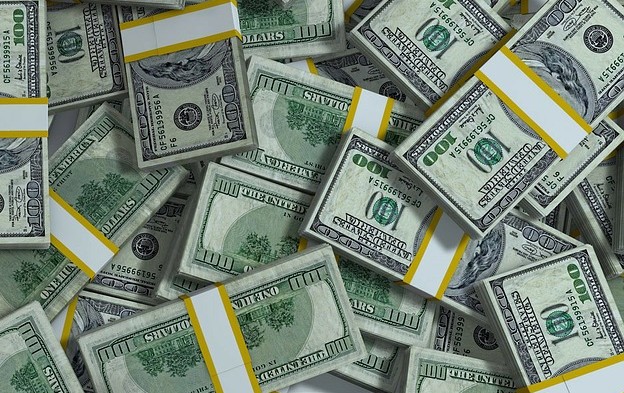Lax oversight of some SE Asia casinos aids crime: UN
Jul 18, 2019 Newsdesk Latest News, Rest of Asia, Top of the deck, World

Weak law enforcement and lax regulation within the Southeast Asia casino sector offer crime syndicates a ready channel for laundering illicit earnings, including those from drug trafficking, according to a newly-published study by the United Nations Office on Drugs and Crime.
The study, “Transnational Organised Crime in Southeast Asia: Evolution, Growth and Impact 2019”, was released on Thursday. The study attempted to look at what it termed patterns of organised crime in Southeast Asia, and the challenges posed to the region by corruption and money laundering. It suggested the pace at which such crimes were growing in Southeast Asia outpaced the ability of local law enforcement to counter them.
The UN study highlighted that as of January 2019, there were 230 licensed casinos in Southeast Asia, including 150 in Cambodia, 67 in the Philippines, and five in aggregate in Laos and Myanmar. The study particularly noted the recent surge in the number of licensed casinos in Cambodia, which hosted only 57 such venues in 2014. The study did not clarify whether it counted slot machine parlours and table games video streaming studios under the heading “casinos”.
But the authors noted: “Many of these casinos emerged after a crackdown on money laundering activities in Macau, China, in 2014, raising concerns that a ‘displacement’ of criminal activities associated with casinos has taken place to Southeast Asia, especially to jurisdictions in the Mekong region that lack regulatory oversight and enforcement capacity.”
The report – issued via the UN’s Regional Office for Southeast Asia and the Pacific, in Bangkok, Thailand – highlighted “increasing reports” of casinos in Southeast Asia “with proven links or alleged links” to organised crime and money laundering.
Casinos in the Mekong region were mentioned in the study. It said such gaming businesses operated “illegally or quasi-legally” in areas that are “characterised by poor governance and political instability”. Those venues – said to operate round-the-clock – offered various financial services that ranged from “foreign exchange” to “cheque issuance”, the study suggested.
“Through these loosely-regulated or entirely-unregulated casinos, third-party intermediaries known as junket operators – who finance high-rollers or VIPs – the identities and activities of significant gamblers can be obscured,” the UN study stated.
The study also identified certain special economic zones in Laos and Myanmar as gambling centres that served as “key nodes” in the illicit trade of drugs, narcotics precursor materials and wildlife products.
The report named in particular the Kings Romans casino complex – located in the Golden Triangle special economic zone in Laos. The venue was sanctioned by the United States Department of the Treasury in January 2018 over alleged links to “serious money laundering”, “storage and distribution of methamphetamine, heroin and other drugs for trafficking networks”, and the “trafficking of wildlife, timber and people”.
Elsewhere in Southeast Asia, casinos in Cambodia had been identified as locations for “bulk cash smuggling and the laundering of organised crime revenues,” the UN document stated.
The study urged governments in Southeast Asia to develop “proper regulatory and enforcement frameworks” in order to disrupt money laundering, which the UN said was partly facilitated through casinos.
Related articles
-
 Donaco EBITDA up y-o-y to above US$4mln...
Donaco EBITDA up y-o-y to above US$4mln...Jul 26, 2024
-
 Cambodia PM imposes ban on new casinos...
Cambodia PM imposes ban on new casinos...Jul 24, 2024
More news
-
 HK listed Palasino upgrades Czech...
HK listed Palasino upgrades Czech...Jul 26, 2024
-
 China embassy in Manila welcomes POGO...
China embassy in Manila welcomes POGO...Jul 26, 2024
Latest News
Jul 26, 2024
Border-casino operator Donaco International Ltd has achieved a 164.17-percent year-on-year increase in its latest quarterly group earnings before interest, taxation, depreciation and amortisation...Sign up to our FREE Newsletter
 (Click here for more)
(Click here for more)
Pick of the Day
”We’ve got more traction outside of Macau at the moment. But Macau’s going be a bigger focus for us”
David Punter
Regional representative at Konami Australia
Most Popular
 Sheraton brand to exit Londoner Macao, to be Londoner Grand July 25, 2024
Sheraton brand to exit Londoner Macao, to be Londoner Grand July 25, 2024  Macau regulator probes unlicensed gaming agents July 24, 2024
Macau regulator probes unlicensed gaming agents July 24, 2024  Philippines gives 20k aliens in POGOs 60 days to leave July 25, 2024
Philippines gives 20k aliens in POGOs 60 days to leave July 25, 2024  Philippines-listed DigiPlus says not affected by POGO ban July 24, 2024
Philippines-listed DigiPlus says not affected by POGO ban July 24, 2024  Sands China 2Q EBITDA down q-o-q amid low hold, renovation July 25, 2024
Sands China 2Q EBITDA down q-o-q amid low hold, renovation July 25, 2024





